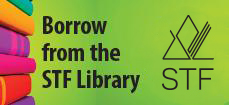
Flat Out Food - Season 2
From the water to the forest, to wide open fields, Saskatchewan produces some of the finest food in the world. Flat Out Food traces local ingredients from the field to the plate with the help of host Jenn Sharp. She travels through the province, meeting the farmers, the food artisans and the chefs who make Saskatchewan’s culinary scene shine.
Tomato
Jenn picks fresh tomatoes at an organic vegetable farm before trying a tomato-based cocktail and a delectable meal starring the bright red fruit.
Season 2 includes the following episodes:
- Walleye
- Milk
- Tomato
- Pork
- Rhubarb
Each episode is 30 minutes in length.




The field-to-plate documentary series follows host, Jenn Sharp, as she travels across Saskatchewan and learns about 8 ingredients. Jenn joins farmers, growers, artisans, and chefs and discovers how these simple ingredients are elevated into mouthwatering dishes.
Season 3 features a dedicated episode for each of these topics:
- Saskatoon Berry
- Garlic
- Yeast
- Wild Rice
- Potato
- Egg
- Bison
- Salt
Run time is 22:30 for each episode.



The field-to-plate documentary series follows host, Jenn Sharp, as she travels across Saskatchewan and learns about 6 ingredients. Jenn joins farmers, growers, artisans, and chefs and discovers how these simple ingredients are elevated into mouthwatering dishes.
Season 4 features a dedicated episode for each of these topics:
- Barley
- Poultry
- Foraged
- Chickpea
- Lamb
- Apple
Run time is 22:30 for each episode.



Saskatchewan Youth Apprenticeship (SYA) is a high school program designed to help students discover the rewards of working in the skilled trades through hands-on experience. It provides students with a head start on apprenticeship and a better understanding of the steps to journeyperson certification. SYA consists of 12 challenges that students complete during high school in order to prepare them for their apprenticeship following graduation.
After completing the 12 challenges:
- Apprenticeship registration fee is waived;
- Level 1 technical training tuition is waived; and,
- 300 trade-time hours will be credited.
The SYA program is offered while taking the following courses:
- Agriculture Equipment Technician 20, 30
- Autobody 10, A20, B20, A30, B30
- Career and Work Exploration 10, 20, A30, B30
- Commercial Cooking 10, 20, 30
- Construction and Carpentry 10, 20, 30
- Electrical 20, 30
- Food Studies 10, 20, 30
- Hairstyling & Esthetics 10, 20, 30, Hairstyling 20, 30, Esthetics 20, 30
- Machining 10, 20, 30
- Mechanical and Automotive 10, A20, B20, A30, B30
- Welding 10, 20, A30, B30




The Education Nutrition website offers free nutrition resources created by dietitians for educators and teachers in Saskatchewan.
Examples of resources on this site:
- Let's Talk About Food
- Feeding Canada Video Series
- A Guided Discovery of Canada's Food Guide
- The Ingredient Lab
- Classroom Kitchen
- Lunch Box Guide Program
- Mindful Eating
- Enjoy Your Food


























Hosted by author and journalist Jenn Sharp, this documentary series highlights unique Saskatchewan ingredients and their journey from the field to the plate.
Jenn discovers how vital yeast is in everything from beer and wine to sourdough bread and pizza dough.
Season 3 features a dedicated episode for each of these topics:
- Saskatoon Berry
- Garlic
- Yeast
- Wild Rice
- Potato
- Egg
- Bison
- Salt
Run time is 22:30 for each episode.










Flat Out Food - Season 2
From the water to the forest, to wide open fields, Saskatchewan produces some of the finest food in the world.
Flat Out Food traces local ingredients from the field to the plate with the help of host Jenn Sharp. She travels through the province, meeting the farmers, the food artisans and the chefs who make Saskatchewan’s culinary scene shine. This documentary series highlights unique Saskatchewan ingredients and their journey from the field to the plate. Season 2 includes the following episodes:
- Walleye
- Milk
- Tomato
- Pork
- Rhubarb
Each episode is 30 minutes in length.




























milled locally. The artisanal process of fresh baked bread is presented.














































and grades. Suggested curriculum outcomes are identified and, if applicable, supporting indicators
are noted.








The purpose of the presentation is to describe strategies teachers can use to approach content that may be perceived as sensitive in their community in order to:
- ensure the learning environment is safe for respectful dialogue;
- teach students how to think critically about any topic with an open mind; and,
- meet curricular outcomes.





Saskatchewan context, differentiation is addressed through the Adaptive Dimension which enables all teachers to respond to student diversity, including their strengths and needs, interests, backgrounds, life experiences and motivations.









